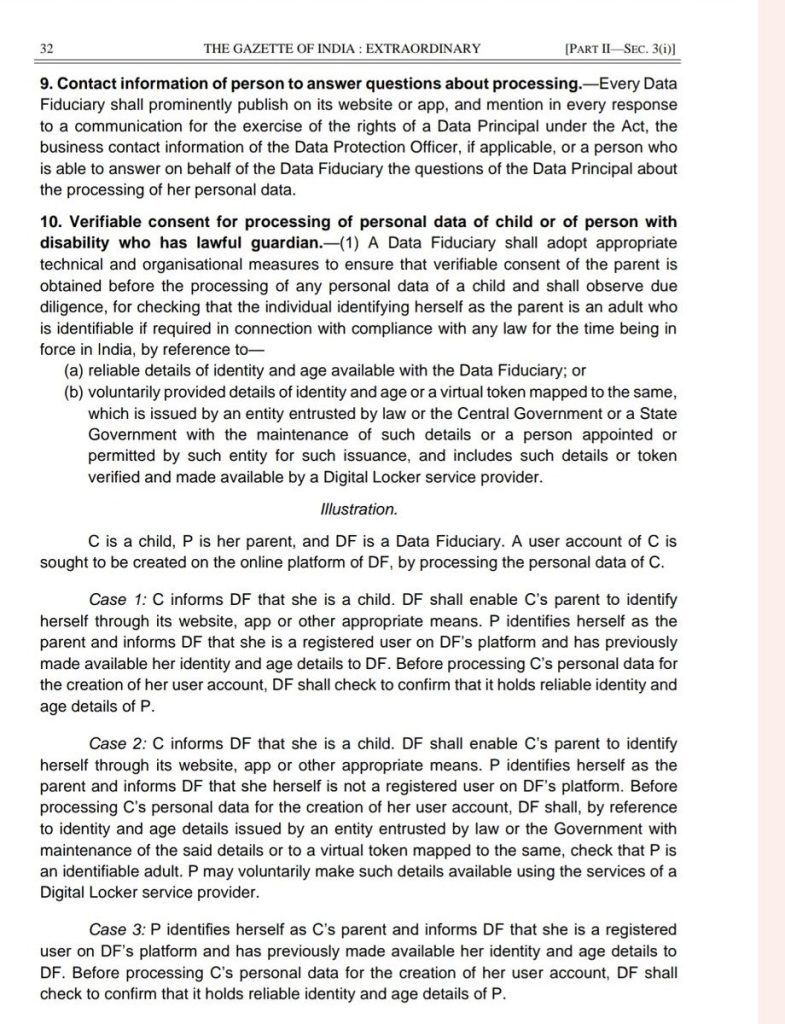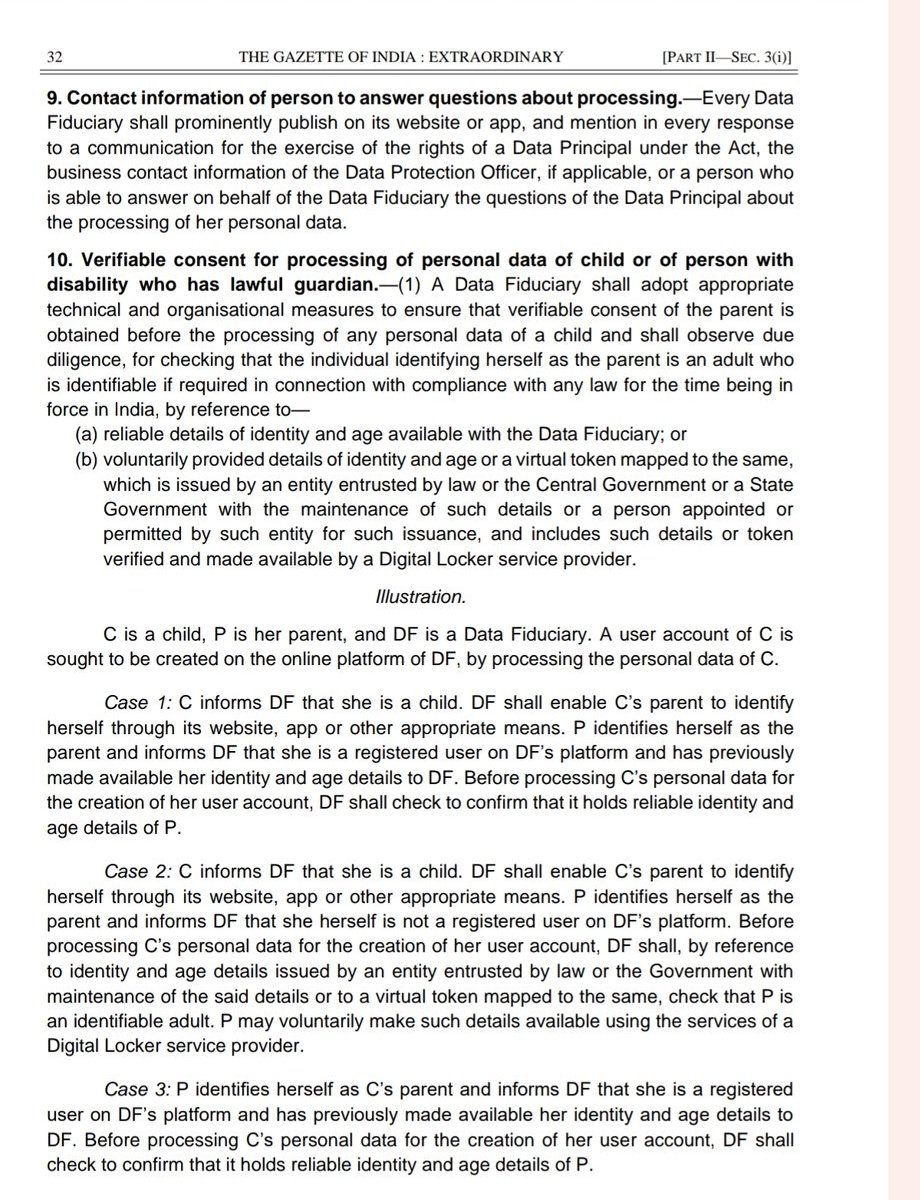Data Protection CX Revolution: Transparency and Ethical Accountability
In Part One, we discussed how customer experience (CX) can thrive through trust and transparency in data protection. In this second part, we focus on further elevating CX through specific provisions of the Digital Personal Data Protection Rules, 2025. These provisions emphasize transparent communication, verifiable consent, and ethical data processing. These principles not only foster user trust but also redefine the digital experience, making it more secure and user-centric.
- Transparent Communication as a Pillar of Trust
Transparent communication is a key factor in building trust with customers. Every Data Fiduciary is required to publish contact information for addressing user queries about data processing. This information should be easily accessible through their website or app. Such accessibility assures users that they can easily reach out with any concerns or questions. By enabling this, companies not only comply with regulations but also demonstrate a commitment to user engagement.
When users feel heard, they are more likely to trust the company with their personal data. This, in turn, creates a very different level of positive cycle of engagement, loyalty, and satisfaction. Transparency thus serves as a bridge to meaningful customer relationships. Customers are more likely to support brands that prioritize clarity and openness, as they feel more secure. Therefore, these practices directly contribute to enhanced user trust.
Digital Personal Data
- Verifiable Consent and Ethical Data Processing
Verifiable consent is another cornerstone of the Digital Personal Data Protection Rules, 2025. In particular, the rules mandate that personal data from children or individuals with disabilities can only be processed with verifiable consent from their lawful guardians. This ensures that the processing is ethically sound and compliant with the law.
The obligation to secure verifiable consent strengthens the relationship between users and brands. It reassures customers that their personal information will not be misused. Furthermore, it demonstrates a brand’s commitment to ethical data handling. Users are more likely to engage with companies that prioritize ethical considerations.
When companies process personal data with clear and transparent consent mechanisms, they make users feel respected. This enhances customer satisfaction and loyalty. By ensuring that data is processed in a fair and lawful manner, companies show they care about customer privacy and protection. This approach, therefore, not only builds trust but also enhances the overall customer experience.
Data Protection Case Studies
- Case Studies in Accountability
To better understand how these provisions work in practice, consider the case study outlined in the rules.
In Case 1, a child informs a Data Fiduciary (DF) about their age. The DF verifies the child’s identity and asks for the parent’s consent to process the child’s personal data. The parent, who is a registered user of the platform, provides the necessary information. The DF then ensures that the provided details match reliable identity records before proceeding. This is an example of how Data Fiduciaries ensure data processing is carried out ethically and securely.
In Case 2, the parent informs DF that their child is not a registered user. The DF then asks the parent to verify the child’s identity and age by providing reliable details. These details are checked to ensure they meet the required standards. Only after this verification is consent sought for data processing. This emphasizes how Data Fiduciaries are accountable for ensuring the data is accurate before processing it.
Finally, in Case 3, the parent identifies themselves as the child’s guardian and provides details to confirm the child’s identity. The DF verifies the identity before processing the data, ensuring full compliance with regulations.
These case studies highlight the critical steps Data Fiduciaries must take to verify identities and obtain proper consent. In doing so, they ensure ethical data processing while protecting user privacy.
Impact
- Impact on Customer Experience
These practices started above have a significant impact on customer experience. By prioritizing transparency and ethical data handling, Data Fiduciaries create a secure environment for users. This leads to increased trust in the company’s data practices. When customers feel their data is being handled responsibly, they are more likely to share their information and engage with the platform.
Moreover, these regulations enhance brand reputation. Companies that comply with the Digital Personal Data Protection Rules position themselves as responsible data stewards. They differentiate themselves from competitors by demonstrating a commitment to privacy and ethical practices.
Data Protection Practices Boost User Engagement
As companies implement these practices, they are likely to see a boost in user engagement and loyalty. Furthermore, the trust built through transparent communication and verifiable consent can drive long-term customer satisfaction. In turn, this strengthens the relationship between users and brands, resulting in a more loyal and engaged customer base.

Conclusion
Incorporating transparency, verifiable consent, and ethical accountability into data protection practices is crucial for building lasting customer relationships. The Digital Personal Data Protection Rules, 2025 provide clear guidelines to ensure data is processed ethically and securely. By adhering to these regulations, companies not only comply with legal requirements but also enhance their customer experience. These provisions create an environment of trust, which is essential for fostering long-term relationships with users. Thus, embracing these principles can help companies stand out in an increasingly privacy-conscious market.
As businesses continue to prioritize ethical data processing, customers will feel more valued, and their experiences will be enriched. Ultimately, this leads to a more customer-centric digital landscape, benefiting both brands and consumers alike.

